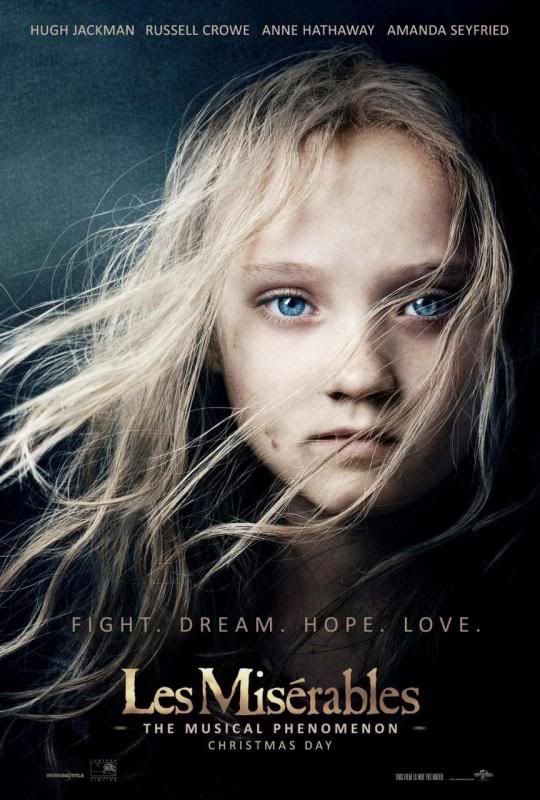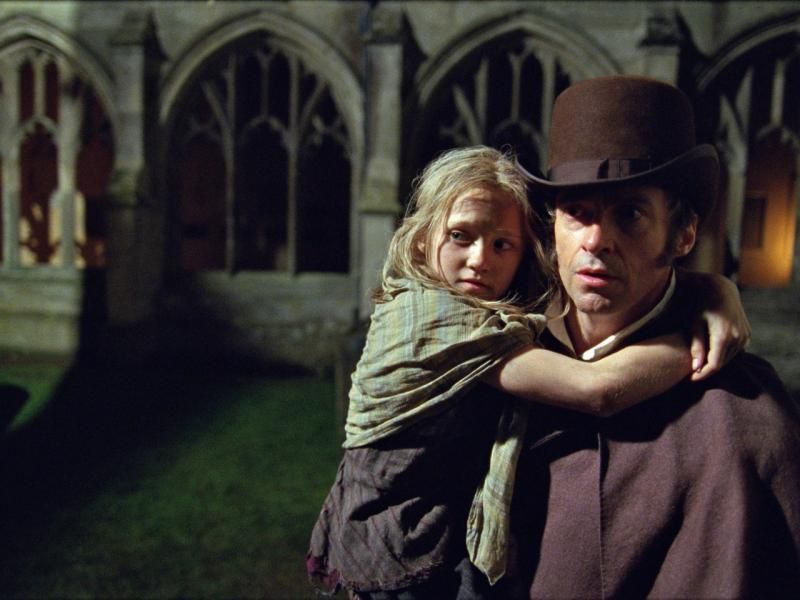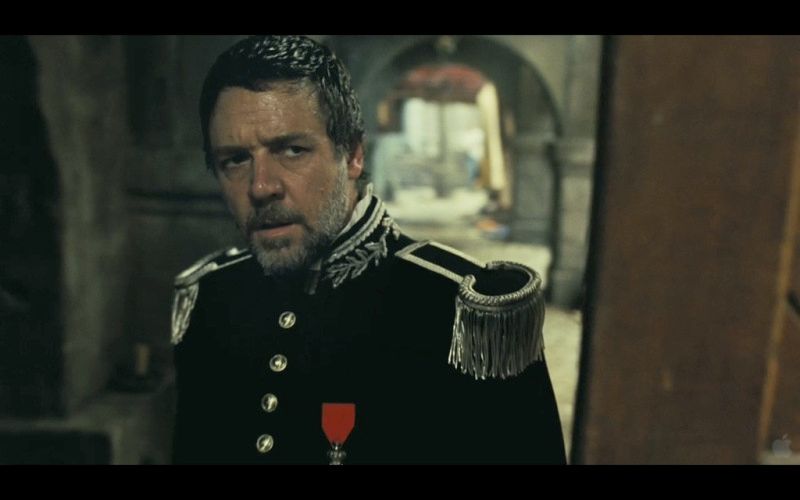I’m one of those kids who grew up in the 80s, and along with a love of Transformers and a front-row seat for the growth of home computing from the Apple ][e to the iPad and Google Glass, like many kids in the 80s my soundtrack for road trips foisted on me and my sisters by my parents was those of Broadway musicals. One of the very best that was often asked for by both my sisters and myself was Les Miserables. The big broad tale adapted from Victor Hugo’s 19th century novel makes for a fantastic stage production. It has fantastic music, deep and complex characters, a fascinating backdrop… and it tries really, really hard to be one of the grandest films ever created.

Our story begins with Jean Valjean, a convict of 19 years who finally gets paroled much to the chagrin of local constable Javert. After an encounter with a benevolent and deeply patient and understanding bishop, Valjean does everything he can reinvent himself as a good citizen. He becomes the owner of a factory and mayor of a small town, before one of his workers, Fantine, is shunned so hard out of the factory she turns to prostitution to pay the bills of her daughter, currently living with a corrupt innkeeping couple. When she dies, Valjean swears to take her daughter into his keeping. He raises her as his own, pursued by Javert, and becomes involved in the June Rebellion of 1832.
The scope of this tale and the involvement of the characters with real events poise it on the edge of truly epic territory, and the revolutionary zeal that permeates the third act definitely reinforces this status. Les Miserables is bent on demonstrating that people can be capable of great change, be it in themselves or for society, and gives examples of both success and failure. Add to this a memorable and moving selection of songs that run the gamut of emotion, from determined resolve to the first pangs of love to despair and loss, and it’s clear why this stage production of this novel has stood the test of time. And now we have a film adaptation of that stage production of the same novel, and unfortunately, something got lost along the way.

The actors really do give their all.
I’m sure a lot of people would jump right into the most immediate flaw in the production, which is the delivery of the songs. Some new songs were added and others had their lyrics changed, which in and of itself can infuriate hardcore Les Mis fans the way the absence of Tom Bombadil from the Lord of the Rings trilogy enrages hardcore Tolkien fans. A good deal of a song’s quality, however, is in the delivery rather than the lyrics, and that means somebody has to sing them. For the most part the cast does an admirable job, with obvious standouts being Hugh Jackman, Anne Hathaway, and Samantha Barks. However, Russell Crowe presents a problem. He’s a great actor, and his singing voice is perfectly fine, even if his range seems a touch limited based on what we hear. The problem is, there are times when he has to transition from singing to acting, and you can almost hear an audible clunk like there’s something stuck in his gearbox. And Amanda Seyfried, lovely as ever, sounds almost nervous at times, in a way that has nothing to do with her character, as she tries to sing some of her lines. How much of this is actually on the cast, though? Let’s pull back and look at the film from a broader perspective.
Les Miserables was directed by Tom Hooper, late of his Oscar-winning direction in The King’s Speech. I like Tom Hooper – his work on the John Adams mini-series is exemplary – but something is just off on his work in Les Mis. He made the decision to have his actors sing on-set, with no dub-overs and (apparently) minimal sound correction. This leads to things like nervous actors (Seyfried), actors having to make odd transitions (Crowe), and some songs just not ringing as true as they could. A key moment in Jackman’s “Who Am I” feels undercut by what must surely have been a decision by Hooper. On top of this, most of the songs are presented with the camera directly in the face of the singer. While this does push the actors to emote in a believable way that evokes pathos, and both Hathaway and Jackman are clearly up to the task, it tends to rip the context out from under the songs. Instead of imagining these high emotional moments in the backdrop of the events in the character’s life, we get the moment encapsulated and isolated in a way that disrupts the narrative flow. As good as the music is, focusing this tightly on it causes the story to suffer and makes the issues in any song all the more glaring.

You had one job. ONE JOB, JAVERT.
I’ll say again that I like Tom Hooper, and he still manages to present some excellent shots in Les Miserables. He does discomfort, tension, intimate character work, and historical atmosphere very well. However, the film never really clicked for me. I like the songs, but they didn’t have the punch they could have. I was moved to tears, but not as much as I could have been. This sort of film is very difficult to review because it both tries hard enough that I want to come down on the side of recommending it, but also makes more than enough mistakes to warrant giving it a pass. I’m sure there’s a song in there somewhere.
Stuff I Liked: 19th century France never felt squeaky clean or over-produced. Helena Bonham Carter and Sacha Baron Cohen make great Thernadiers. Costume design was good. As I said, Hooper presents some fantastic shots here and there.
Stuff I Didn’t Like: The constant close-ups were at first unnerving, then annoying. A little editing of the songs could have smoothed over a lot of issues. Russell Crowe feels misdirected in places, which undercuts an otherwise exemplary performance. Marius and Cosette’s romance feels a touch ridiculous as presented and much of the third act seemed a bit rushed.
Stuff I Loved: Jackman and Hathaway are absolutely fantastic. For all of the faults in his performance, Crowe does a great job with the complex and compelling character of Javert. Despite their changes and presentation, many of the songs still have their emotional weight and power, especially “I Dreamed A Dream”, “Bring Him Home”, and “Empty Chairs at Empty Tables”.
Bottom Line: I wanted to like Les Miserables. What it manages to accomplish is admirable. But, unfortunately, it stumbles too much and makes too many mistakes to earn a strong recommendation. You would have just as good an experience listening to the soundtrack from either the film or the musical, and nothing will compare to seeing it on stage. Granted, the film version is cheaper, but this is truly a case of you get what you pay for.



